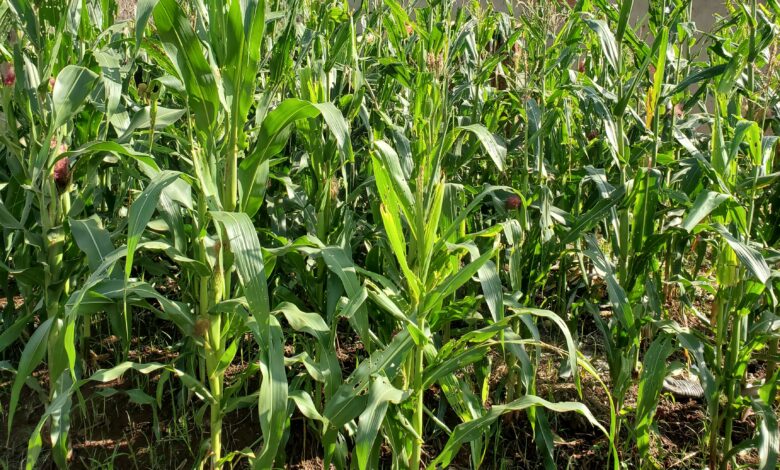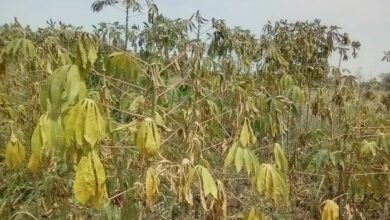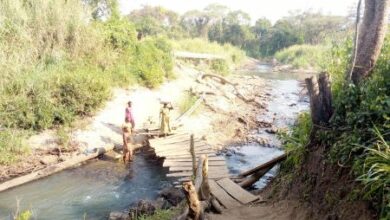Farmers in fear as FAW ravages maize farms in Amuru

AMURU – Farmers in Lakang and Layima sub-counties, Amuru district are afraid of suffering losses following the invasion of maize farms by the deadly Fall armyworm [ FAW ].
According to agriculturalists, when FAW attacks, it lowers yield potential in maize and other grains.
The presence of the moths has so far been recorded in the villages of Palema and Lajalula in Layima Sub-county and Bana Central and Bana Hill in Lakang Sub-county.
Nickson Oloya, a farmer in Bana Central said some 4 acres of his maize plantation have been eaten up by the FAW.
Oloya, who planted 8 acres of maize in the first planting season, is worried about recovering the money he used in establishing his maize farm.
Jimmy Nokrach, a farmer in Lajalula, in Layima Sub-county said his maize garden for a while hosted some butterflies, which he never took seriously as a threat to the plants.
According to Nokrach, the few maize cobs he has tried to harvest have been presented with living worms.
“I am not sure how I am going to recover my money, which I thought I would get from the maize farm which somehow had overcome the dry spell we experienced. Unfortunately, we don’t have any agriculturalists around us to advise on what to do,” Nokrach said.
Simon Komakech, the Amuru district agricultural officer when contacted couldn’t confirm the presence of the moths saying he needed to visit the farms first.
Phillip Mungujakisa, an agriculturalist advised farmers to spray gardens infested by FAW using chemicals such as Dudu Acelemectin, Dimethrin, Karate among others in order to kill the larvae and prevent them from spreading to other crops.
According to Mungujakisa, the effect is usually dire when there has been a prolonged dry spell, and especially when maize cobs are being formed.
The affected Sub-counties in Amuru district are largely known for producing maize at a commercial level, with several farmers farming in groups.
According to the Agriculture Ministry, to prevent or minimise damage by FAW, farmers should; deep plough the soil to bury the larvae and the pupae or plough to expose them within the upper soil surface; plant early at onset of rains to avoid peak immigration of adult moths.
They should also destroy crop residues by burying or burning as they provide shelter and food to caterpillars; timely and regularly remove weeds from the crop and destroy the surrounding host vegetation; boost the crop growth vigor by using optimum fertiliser application.
Background
FAW, is an insect pest native to tropical and subtropical regions of Americas. It is new to Africa and was first detected in central and west Africa in early 2016. The pest was first reported in Uganda in June 2016 in Kayunga, Kasese and Bukedea districts and by end of 2017, the pest had spread to all the districts.
FAW is a migratory, highly polyphagous pest capable of feeding on more than 80 plant species with cereals [maize and sorghum] being the most preferred hosts. In Uganda, the pest has been observed feeding on maize, sorghum, sugarcane, rice, napier grass and rhodes grass.
FAW is migratory and adult moths can cover over 500 kilometres before oviposition. The pest can persist in an area throughout the year where suitable environmental conditions and hosts exist. Thus, with this conducive environment, FAW is likely to build permanent and significant populations making complete eradication of the pest impossible.
Buy your copy of thecooperator magazine from one of our country-wide vending points or an e-copy on emag.thecooperator.news







